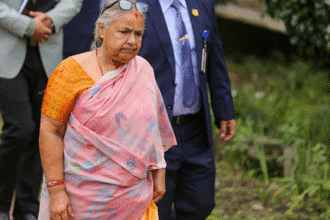With its majority in parliament lost for the first time since 2009, the coalition headed by Japan’s ruling Liberal Democratic Party (LDP) has suffered a considerable blow. With just 215 seats—far less than the 233 needed for a majority—this becomes the LDP’s lowest result in more than ten years. Komeito, the party’s more minor coalition partner, also fell short.
The new leader of the party, Shigeru Ishiba, has said that despite the unsatisfactory result, there are no intentions to grow the coalition at this point. Emphasising the need for the party to pay top attention to voters’ issues, Ishiba said, “The Japanese people expressed their strong desire for the LDP to do some reflection and become a party that acts in line with the people’s will.”
How Are Voters Responding to This Situation?
Calling the election just before taking office as prime minister, Ishiba promised to stay in government even if the LDP lost its legislative majority. “Voters have handed us a harsh verdict, and we have to accept this result humbly,” he said on the NHK national network. Ishiba’s speech’s tone captures a notable change in the party’s strategy because he admitted the election result shows a “severe judgment” from the voters.
Among rumors concerning his future, Ishiba was pressured to step down should the party lose its majority, rendering him the shortest-serving prime minister in Japan following the war. The LDP has virtually dominated Japan almost exclusively since its founding in 1955; hence, this loss is especially significant.
What Factors Contributed to the LDP's Loss?
The LDP’s recent problems result from a turbulent period marked by a flood of scandals, general voter indifference, and the lowest approval ratings ever recorded. After a political fundraising corruption scandal rocked its leadership, the party’s support ratings dropped below 20% earlier this year.
Declaring, “We need to answer the people’s criticism,” Ishiba has promised to attend to these issues. I shall accept accountability for the election defeat. In addition, he promised to revive rural Japan and address growing inflation, problems that have progressively troubled the people.
Can the Opposition Parties Unite for Change?
Although the Constitutional Democratic Party (CDP), the biggest opposition party, secured 148 seats, opposition groups have battled to coalesce or project themselves as workable substitutes for the current coalition. The CDP’s rating of approval before the election was just 6.6%. CDP leader Yoshihiko Noda indicated a possible change in Japan’s political scene by stating intentions to cooperate with other parties to remove the incumbents.
Reflecting the widespread disenchantment among voters, a long-time LDP supporter said, “It is tough to choose parties; I think people are losing interest. Although the LDP suffers from alleged corruption, the opposition does not particularly distinguish it. They certainly grumble, but their desired course of action is not apparent.
How Are Financial Markets Reacting to the Election Results?
The benchmark Nikkei 225 stock index climbed by almost 1.5% after the election results, while the yen dropped versus the US dollar. Political dynamics in Japan have been changing quickly, even if voters’ general disinterest is evident.
After being chosen by the LDP, Ishiba replaced Fumio Kishida, who made an unexpected August resignation call-off decision. The demand for elections came at a time when the LDP needed to rebuild its damaged reputation. An experienced politician formerly serving as defense minister, Ishiba has described the election result as the “people’s verdict.”
What Scandals Have Impacted the LDP's Reputation?
Many scandals have tarnished the party’s credibility, most famously its dubious connections to the Unification Church, which detractors call a “cult.” Allegations of political finance corruption have also surfaced; prosecutors are examining scores of LDP legislators accused of pilfering funds from political fundraising events. These controversies have caused powerful party groups to disintegrate, compromising their internal stability.
Attending an opposition demonstration at Urawa station on the outskirts of Tokyo, a worried citizen remarked, “What a terrible state the ruling party is in.” “It is tax dodging, and it is unforgivable.” Many, especially given Japan’s economic difficulties, share her irritation.
How Are Rising Prices Affecting the Public?
Many people feel the squeeze as Japan struggles with growing prices, particularly on daily items. While prices have jumped at the quickest rate in almost half a century over the past two years, wages have stayed flat for three decades, labeled “the lost 30 years.”
One observed, “I pay 10,000 yen or 20,000 yen ($65 – $130; £50 – £100) more for groceries every month than I used to. Though I am saving, it still costs more. Fruit, among other things, is quite costly.
Another person mentioned that she now works part-time to help with expenses. Emphasizing the hardships experienced by many people, she remarked, “Our hourly pay has gone up a bit but it does not match the prices.” “Everything in regular stores is expensive, thus I visit places like this in search of something reasonably priced and good.”
The latest election results point to a turning point for the LDP and the opposition parties as Japan develops. Both parties must react to a population ready for change amid political unrest and economic hardships.
Russian Oil and Global Politics: Trump, India, and Energy Tensions








